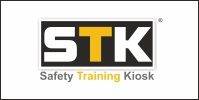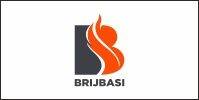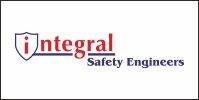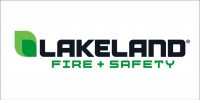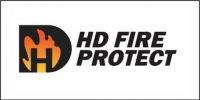 It is most effective to have one person in charge of creating the emergency preparedness plan.
It is most effective to have one person in charge of creating the emergency preparedness plan.
Workplace safety is a topic of importance for most companies, as it keeps employees safe and productive, reduces liability issues, and prevents unneeded interruptions during business hours. Many businesses focus on the importance of safety for their workers as it pertains to everyday operations, but it is not uncommon for a company to overlook creating and implementing a comprehensive safety and preparedness plan for emergencies and disasters that may strike.
Some disasters, such as hurricanes or severe storms, can be forecasted, while other emergency situations can occur with little to no warning, such as earthquakes, fires, tornadoes, flooding, or a biological attack. A company-wide emergency preparedness plan is one of the most effective ways to prevent injuries or loss of life in the case of a disaster. For an emergency preparedness plan to be fully effective, it not only has to be comprehensive and well thought out, but also has to be something that every employee is familiar with and understands.
Creating an Emergency Preparedness Plan
It is essential for every business to have an emergency preparedness plan that focuses on informing and training employees on what to do in order to safely react to a disaster that affects the workplace. The main goal of an emergency plan is to protect employees, but an emergency plan can also help to protect the physical aspects of a business, such as office equipment or inventory, depending on the type of disaster being faced.
Risk Assessment
Certain areas of the country are obviously more prone to specific types of disasters. A business located in the Midwest may want to spend extra time when creating an emergency plan to prepare for tornadoes, while companies on the southeast coast may think about hurricanes, and a West Coast business may spend more time planning for a potential earthquake. Understanding the potential risks that are likely in a certain location allows a company to create a workplace emergency plan that encompasses all risks but gives extra attention to the disasters that are most likely to occur in its area.
An emergency often causes people to either step up or break down. When an emergency situation or natural disaster happens during business hours, it is important to have a plan that keeps employees safe while also trying to keep them calm. Being away from family or close friends can be very stressful during a disaster situation; companies that make advance plans for emergencies or disasters can ensure that everyone stays safe and reacts in a calm manner.
A company can have the best and most comprehensive emergency response plan to keep employees safe during a disaster, but if no one knows about it or knows how to respond, the details are useless. Time may be money, but having employees take time away from their tasks for emergency drills can ensure that everyone knows what to do in the event of an emergency. It is also in the best interest of a company to make sure all employees understand the emergency procedures for any type of disaster that may happen.
Preparing for Specific Emergencies
Fire
A fire can be a disaster at any time, but if a fire breaks out when employees are on the clock, it is important for a company to have a plan in place to safely remove employees from the situation. A company with a good emergency preparedness plan will be able to get employees out of the way quickly. Fire drills are essential in order to ensure that employees know how to get out of their building safely.
Hurricane
Hurricanes are a powerful force of nature capable of inflicting a lot of damage to homes and businesses and harming people who are out in the storm. These powerful storms are almost always tracked and forecasted in advance, so many employees can stay home or evacuate, when possible. But some employees, such as doctors or nurses, must remain on duty and provide services during any kind of weather emergency.
Tornadoes
A tornado can form anywhere in the right type of weather conditions. They can be extremely destructive. A company that has offices or locations in areas that are prone to tornadoes should have a very specific emergency plan outlining how to safely react in the event of a tornado. A workers’ safety plan in an area that experiences tornadoes should clearly outline where employees can safely seek refuge if a tornado is in the area.
Biological or nuclear attack
Planning for a biological or nuclear attack is nearly impossible, and hopefully it will never happen, but if the situation does arise, employees can reduce the amount of exposure they have if a company has the proper filters in place. Companies that already deal with dangerous fumes and chemicals may be more prepared for a chemical attack than other industries when it comes to emergencies.
Earthquake
A strong earthquake can be very destructive, and if one hits during business hours it is essential that workers know how to respond in order to protect themselves and minimize injuries. When an earthquake begins, employees should know that the safest thing to do is drop to the ground and cover their neck and head with their arms. Trying to move around during an earthquake is likely to result in injuries, so evacuation of a building is not recommended while the event is occurring. After the shaking stops, workers should follow a company’s evacuation plan to safely remove themselves from the building.
Flooding
A flood can occur after hours of heavy rain, while a flash flood can happen in mere moments without warning. Any worker present during a flood needs to know how to evacuate the building and retreat to higher ground. An emergency preparedness plan should emphasize that workers should not enter any running flood waters on the property. If a flood is imminent, someone needs to know how to safely turn off the electricity to prevent injury due to electrocution.
Severe storms
Severe storms may come with rain and lightning or heavy snow and ice. Storms are often forecasted but can become more severe than predicted; in these cases, it is important for a company to have a plan to keep workers safe. This may include telling employees not to come in to work or having provisions available if workers must remain at work after normal hours.
Emergency Plan Preparation
While it is important for all workers to know and understand the procedures for different types of emergencies that may occur while at work, it is most effective to have one person in charge of creating the emergency preparedness plan. An emergency coordinator does not have to be a full-time job title; the responsibilities of organizing and implementing a workplace emergency preparedness plan can be included in the workload of the person appointed to complete the task. The responsibilities of the emergency coordinator may include:
Creating a written plan
The key to ensuring worker safety in the event of an emergency or disaster is to have the emergency preparedness plan in writing. The plan should go into detail describing the procedures for any disaster or emergency that could possibly happen. Having the plan in writing makes it possible to distribute it to different departments so that every person in a company is aware of it.
Conducting training and drills
A written emergency preparedness plan is only the first step in protecting workers’ safety if a disaster happens. It is easy to read and understand emergency procedures, but if an actual emergency occurs it can be difficult to implement theoretical knowledge. Conducting drills and regular training on procedures to follow in the event of an emergency can greatly increase the chances of workers knowing how to react and stay safe in any type of disaster that may happen.
Assembling emergency supplies
In addition to creating an effective emergency plan, having emergency supplies on hand can minimize dangers that workers may encounter during a disaster that occurs when they are at work. A well-stocked emergency supply kit should contain a full first aid kit, fire extinguishers, respirator masks, emergency protective clothing, and alternative communication devices, such as a weather radio. Depending on the resources available for creating an emergency supply kit, a company also may want to consider purchasing a gas-powered generator.
A cavalier attitude toward emergency planning can lead to unnecessary injuries and structural damage. A company that takes the time to create an emergency preparedness plan shows that it values its employees and takes workplace safety seriously. Hopefully an emergency plan will never need to be used, but the initial investment of the time and resources needed to devise a comprehensive emergency preparedness plan can protect the safety of workers for years to come.
















